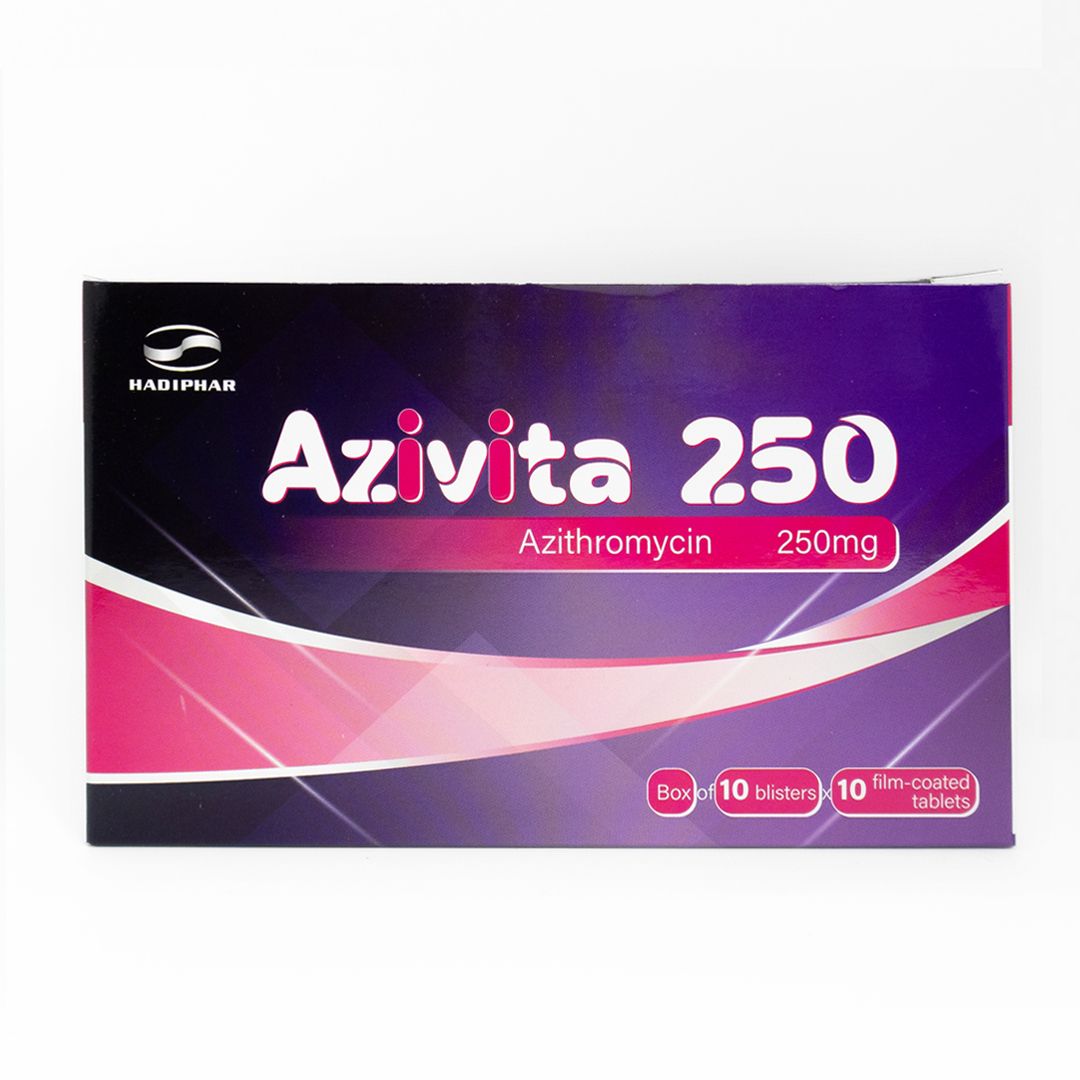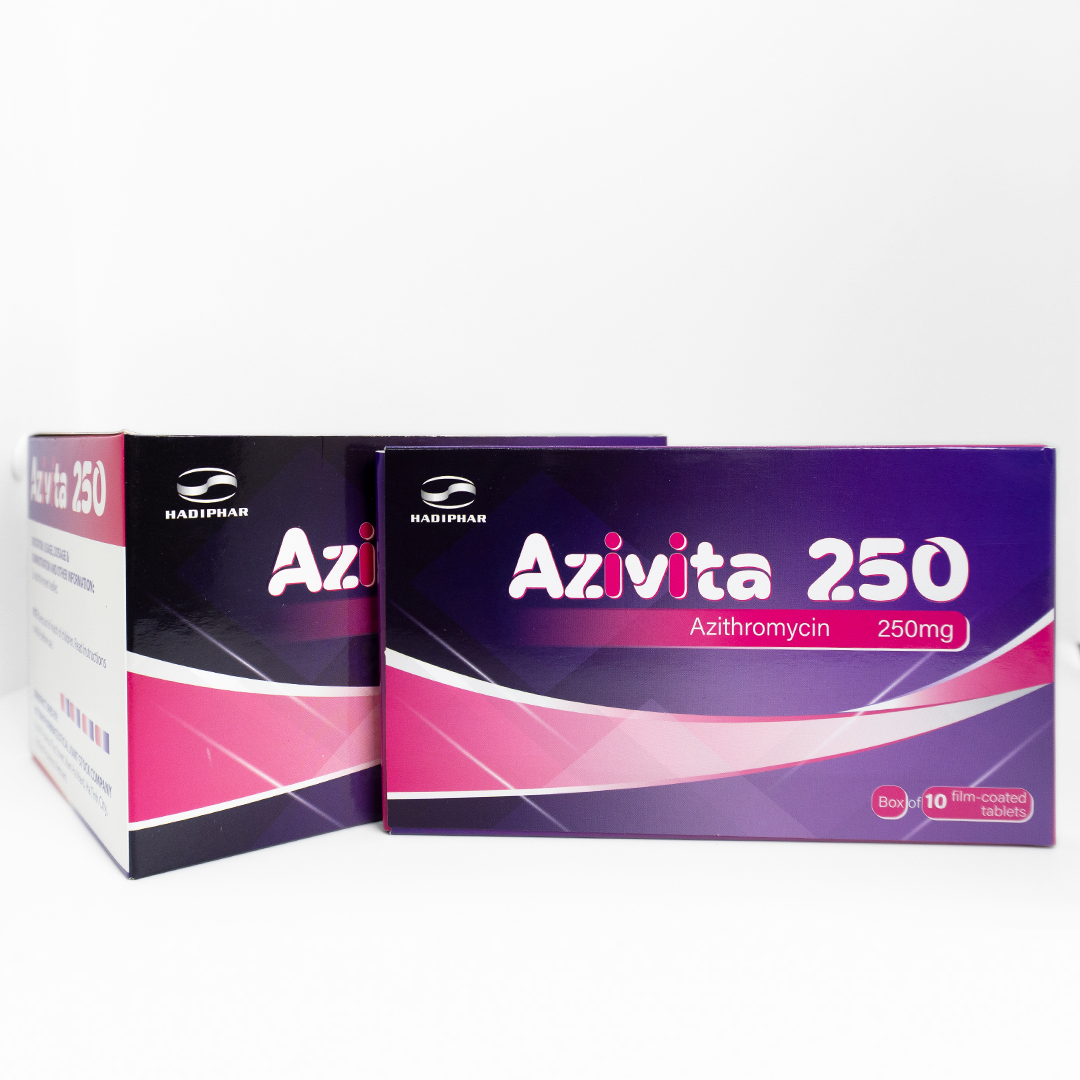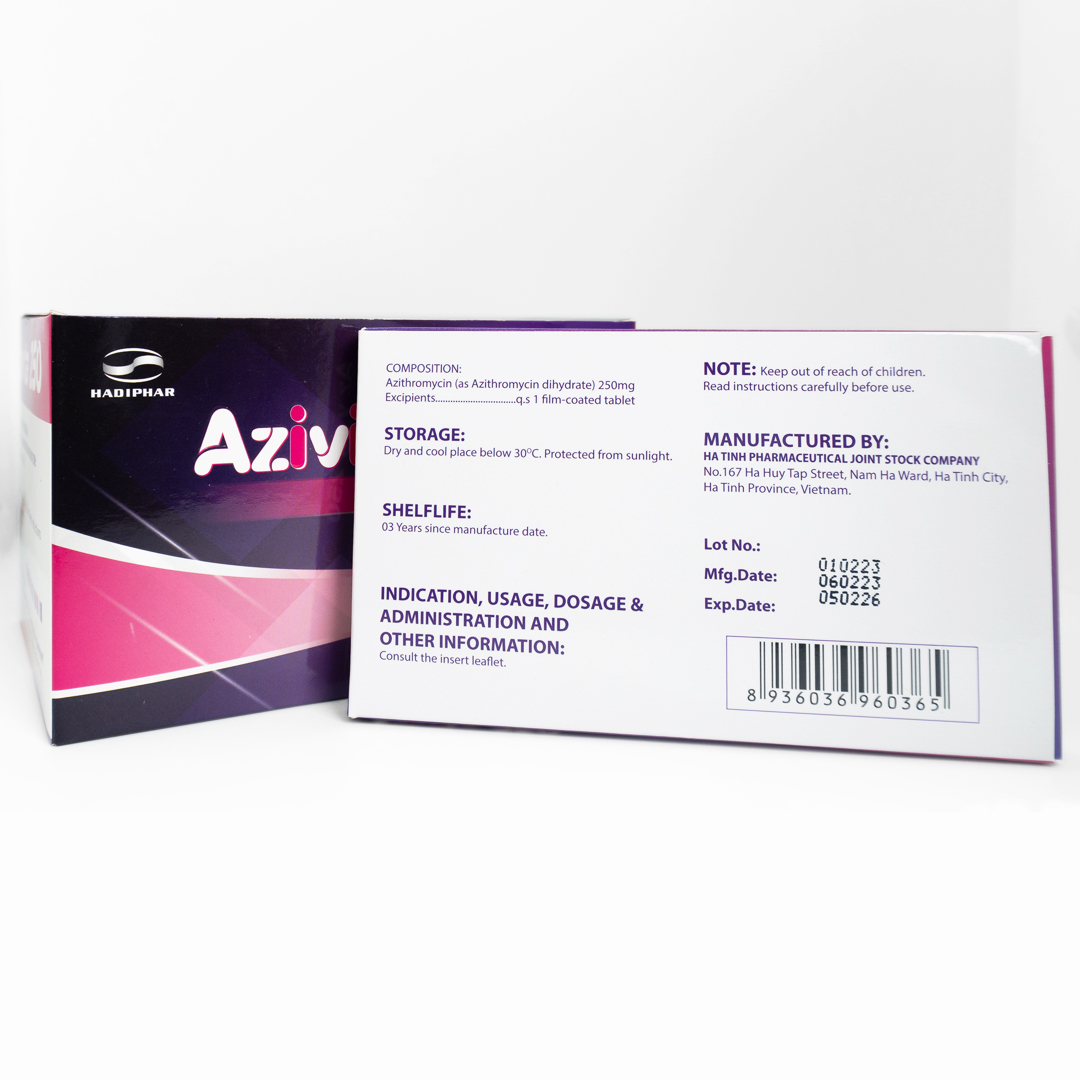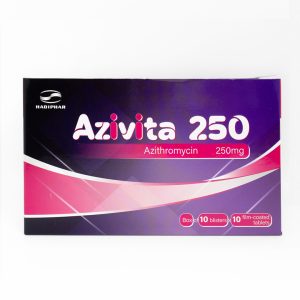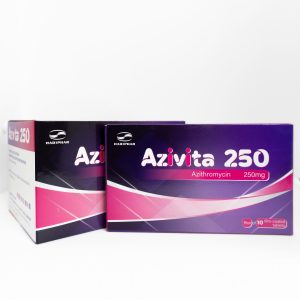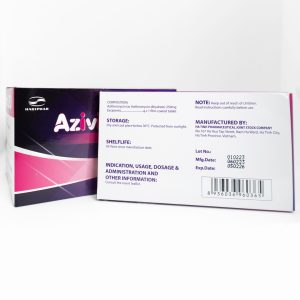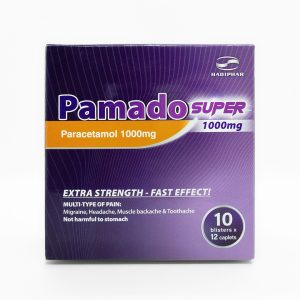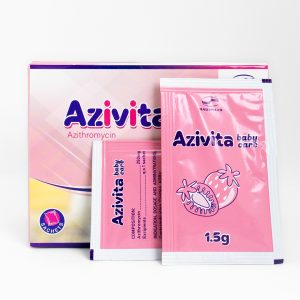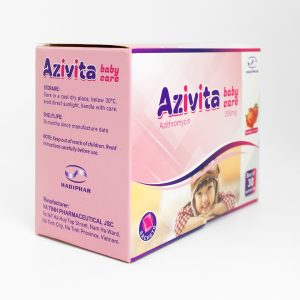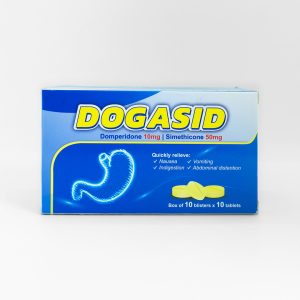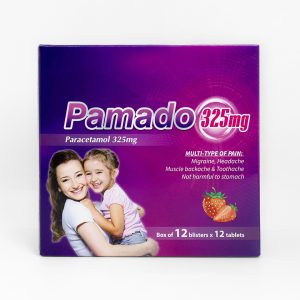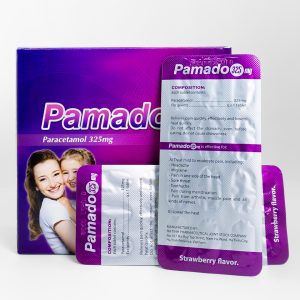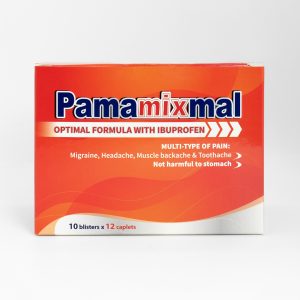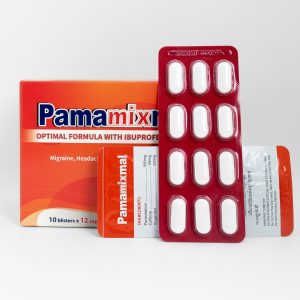INDICATIONS
Azithromycin belongs to a group of medicines called macrolide antibiotics. Antibiotics are used to treat infections caused by micro-organisms like bacteria. Azithromycin is used for the treatment of certain infections caused by bacteria that are sensitive to it, such as:
- Chest, throat, or nasal infections (such as bronchitis, pneumonia, tonsillitis, sore throat (pharyngitis), and sinusitis)
- Ear infections
- Skin and soft tissue infections
- Infection of the tube that carries urine from the bladder (urethra) or the neck of the womb (cervix) caused by Chlamydia trachomatis (bacteria)
DOSAGE & ADMINISTRATION
Dosage:
-
For adults and young people with a body weight of 45 kg or over:
- 500 mg once daily for three days, with a total dose of 1500 mg.
- Alternatively, your doctor may decide to prescribe the total dose of 1500 mg over a period of 5 days, with 500 mg on the first day and 250 mg on days 2 to 5.
-
For infections of the neck of the womb and urethra caused by Chlamydia trachomatis
- One dose of 1000 mg, to be taken one time.
-
Children and adolescents under 45 kg:
- The tablets are not recommended. Young people with a body weight of less than 45 kg should use other forms of this medicine.
-
Patients with kidney or liver problems:
- You should tell your doctor if you have kidney or liver problems as your doctor may need to alter the normal dose.
-
Dosage for elderly:
- For elderly patients, the same dosage as for adults applies. The tablet can be divided into equal doses.
Method of Administration:
- The tablets should be taken with ½ glass of water.
- The tablets can be taken with or without food.
Usage:
- Taken orally.
WARNINGS AND PRECAUTIONS WHEN USING DRUGS
Talk with your doctor or pharmacist before taking Azithromycin if:
- You have severe liver or kidney problems.
- You have severe heart problems or problems with your heartbeat such as long QT syndrome (shown on an electrocardiogram or ECG machine).
- Your blood levels of potassium or magnesium are too low.
- You develop signs of another infection.
- You are taking any ergot derivatives such as ergotamine (to treat migraines), as these medicines should not be taken together with Azithromycin (see section “Taking other medicines”).
- You have a certain type of muscle weakness called myasthenia gravis.
- You have nervous (neurological) or mental (psychiatric) problems.
SIDE EFFECTS
Very Common (may affect more than 1 in 10 people)
- Diarrhoea
Common (may affect up to 1 in 10 people)
- Headache
- Being sick (vomiting), stomach pain or cramps, loss of appetite
- Change in the quantity of white blood cells and the concentration of bicarbonate in the blood
Uncommon (may affect up to 1 in 100 people)
- Thrush (Candidiasis) – a fungal infection
- Fungal infection
- Bacterial infection
- Inflammation of the throat (pharyngitis)
- Breathlessness, chest pain, wheezing, and cough (respiratory disorder)
- Inflammation of the mucous membrane inside the nose (rhinitis)
- Stomach flu (gastroenteritis)
- Inflammation inside the vagina (vaginitis)
- Pneumonia
- Changes in the number of white blood cells
- Blood cells edema
NOTE: Keep out of reach of children.
Read instructions carefully before use.
MANUFACTURED BY: HA TINH PHARMACEUTICAL JOINT STOCK COMPANY
No.167 Ha Huy Tap Street, Nam Ha Ward, Ha Tinh City, Ha Tinh Province, Vietnam.
